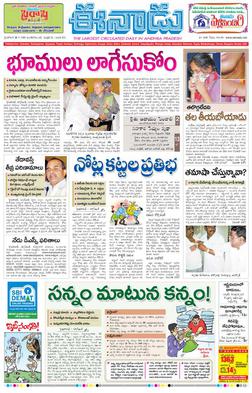Info Edge (India) Pvt. Ltd. and Anr. v. Shailesh Gupta and Anr.
Info Edge (India) Pvt. Ltd. and Anr. v. Shailesh Gupta and Anr.
98 (2002) DLT 499
Brief Facts:
Plaintiff adopted the name ‘NAUKRI.COM’ in 1997 and since then the Plaintiff was carrying on the business under the aforesaid domain name. In 1999, Defendant registered two domain names ‘JOBSOURCEINDIA.COM’ & ‘NAUKARI.COM’ and was in the identical activity of business as that of the Plaintiff. The Defendant was also hyper linking the word ‘NAUKARI.COM’.
Plaintiff filed a suit for passing off against the Defendant and claimed an ad-interim relief.
Plaintiff’s Case:
• Domain name ‘NAUKRI.COM’ has assumed a distinctiveness as the Plaintiff has chosen a Hindi word and use the same in the English script as early as in the March, 1997 in the internet world, which is dominated by the English domain names.
• The word NAUKRI has attained a secondary meaning to connote and denote the services offered by the Plaintiff.
• Use by the Defendant of a similar domain name as that of the Plaintiff was dishonest and was done with bad faith, particularly in view of the fact that the said ‘NAUKRI.COM’ was merely being used as a hyperlink i.e. a link to lead any user who types ‘NAUKRI.COM’ to ‘JOBSOURCEINDIA.COM’.
• Defendant decided to adopt and use ‘NAUKARI.COM’ to attract web-surfers & innocent users for diverting the traffic to the website ‘JOBSOURCEINDIA.COM’ as any user, who by mistake types ‘NAUKARI.COM’ instead of ‘NAUKRI.COM’, would automatically reach the website ‘JOBSOURCEINDIA.COM’.
Defendant’s Case:
• The mark ‘NAUKRI.COM’ of the Plaintiff is a generic mark. The Plaintiff has chosen to use the domain name ‘Naukri.Com’, which is descriptive of the business, the Plaintiff carries on i.e. it gives information to its subscribers about the availability of jobs and employment in various establishments.
• Plaintiff cannot claim any protection in respect of trademark ‘NAUKRI.COM’ as such domain names are incapable of performing trademark function.
• Since it is a case of the Plaintiff that the Plaintiff’s trade mark has assumed a secondary meaning, the same is required to be proved by leading evidence as the same is purely a question of fact and could be determined only after trial is over and evidence is recorded.
Court’s Observations:
• A name used to identify an internet service is called a domain name. It is settled law that the domain name serves the same function as the trademark and is not a mere address.
• When a Defendant does business under a name, which is sufficiently close to the name under which the Plaintiff is trading and that name has acquired a reputation, the public at large is likely to be deceived and misled that the Defendant’s business is the business of the Plaintiff or is a branch or Department of the Plaintiff.
• There is definitely peculiarity in the aforesaid domain name of the Plaintiff as the Plaintiff has adopted a Hindi word with English script. Thus, distinctiveness could be attributed to the said domain name of the Plaintiff.
• The Plaintiff has also placed on record various clippings and write-ups in support of its claim of popularity, goodwill and reputation.
• Defendant registered two domain names, one with the name of ‘JOBSOURCEINDIA.COM’ and ‘NAUKARI.COM’, somewhere in 1999, by which time the Plaintiff had assumed and achieved in its field of activity a great reputation.
• Defendant through it’s counsel submits that the word ‘Naukri’ cannot assume a significance of a trademark, as the same is generic as it denotes and describes the nature of work and business offered by the Plaintiff.
• If a product of a particular character or composition is marketed in a particular area or place under a descriptive name and gained a reputation there under, that name which distinguished it from competing products of different composition, the goodwill in the name of those entitled to make use of it there was protected against deceptive use there of the name of competitors.
• Even assuming that the said word is generic yet if it is found by the court that such a mark has attained distinctiveness and is associated with the business of the Plaintiff for considerable time and thereafter the Defendant adopts a similar word as one of his two marks to induce innocent internet users to come to the website of the Defendant, which establishes dishonest intention and bad faith, would the court still be not granting injunction to protect the business of the Plaintiff? The answer to the said question has to be an emphatic ‘No”. User of similar word by a competitor coupled with dishonest intention and bad faith would empower a court to restrain such user/misuser to do equitable justice to the aggrieved party.
• Defendant has employed minor mis-spelling of the Plaintiff’s mark, although it has another such mark available to it. The said action indicates and establishes dishonest intention on the part of the Defendant. That appears to have been done with bad faith in order to gain advantage of spelling error made by the internet user while attempting to enter into the Plaintiff’s internet address on their web-browser. The very purpose of having two registered domain names by the Defendant only establishes the dishonest intention and bad faith on the part of the Defendant.
Injunction was granted in favour of the Plaintiff and the Defendant was restrained from using the domain name ‘NAUKARI.COM’.


